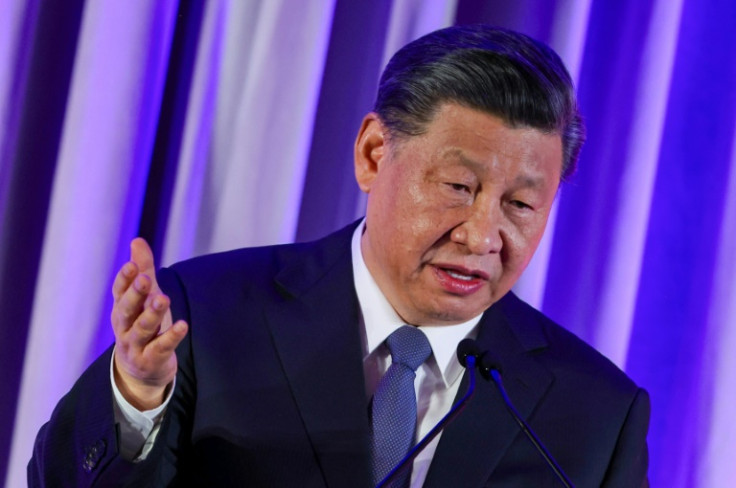
Chinese President Xi Jinping landed in Paris on Sunday, as part of a three-country tour of Europe to rejuvenate diplomatic ties. Xi's trip, spanning France, Serbia, and Hungary, offers a chance to win over his critics while also highlighting that while some parts of Europe are growing skeptical, others are still embracing China.
According to the New York Times, Xi seeks to showcase China's increasing influence in Europe and pursue a practical reconciliation. He aims to foster a pragmatic reconciliation amid strained relations with several European nations over China's alignment with Russia, its surveillance measures, and alleged espionage actions resulting in recent arrests in Germany.
In recent weeks, the European Union initiated trade investigations concerning China's wind turbines and medical equipment procurement. Additionally, offices of Chinese security equipment manufacturer Nuctech were raided as part of a subsidy investigation. Germany and the United Kingdom also apprehended or charged at least six individuals for suspected espionage and related offenses tied to China.
Xi's visit is scheduled to begin with a meeting with one of his critics, European Commission President Ursula von der Leyen, alongside French President Emmanuel Macron on Monday. On Tuesday, Macron plans to accompany Xi to the Pyrenees, a mountainous area that holds special significance for the French President due to being the birthplace of his maternal grandmother. Following this visit, Xi will travel to Serbia and Hungary, both of which maintain friendly relations with Russia. German Chancellor Olaf Scholz will not be able to join Macron and Xi in Paris due to prior commitments, reported Reuters.
The conflict in Ukraine, a pivotal issue in Europe-China relations, is anticipated to be discussed during early-week meetings. Xi might aim to reinforce China's efforts to portray itself as a mediator in the region, seeking to address this significant matter.
Xi's upcoming visit to Belgrade will coincide with the commemoration of the 25th anniversary of the tragic event; NATO's bombing of the Chinese embassy in Belgrade, which resulted in the loss of three lives. This bombing occurred amidst NATO's extensive military campaign in the Balkans during the spring of 1999. The incident deeply entrenched Beijing's animosity towards the alliance, despite the United States' insistence that it was an unintended mistake.
Upon his arrival in Paris, Xi Jinping, greeted by Prime Minister Gabriel Attal, emphasized in a statement that the relationship between China and France serves as a model for peaceful coexistence and mutually beneficial cooperation among nations with diverse social systems.
Meanwhile, there's also speculation that China might unveil an order for approximately 50 Airbus aircraft. However, the nature of this potential deal—whether it involves new arrangements or not—is still uncertain, according to sources familiar with the negotiations.
Earlier, the Chinese foreign minister, Wang Yi had said, "As long as China and Europe join hands, bloc confrontation will not occur, the world will not fall apart, and a new Cold War will not take place."







